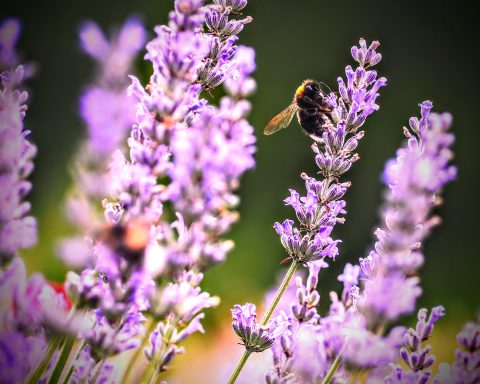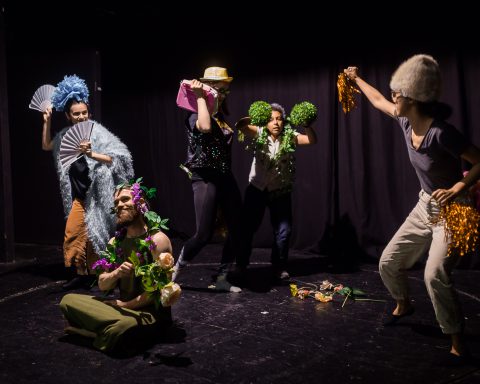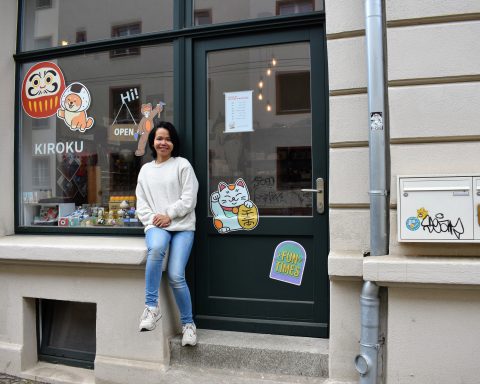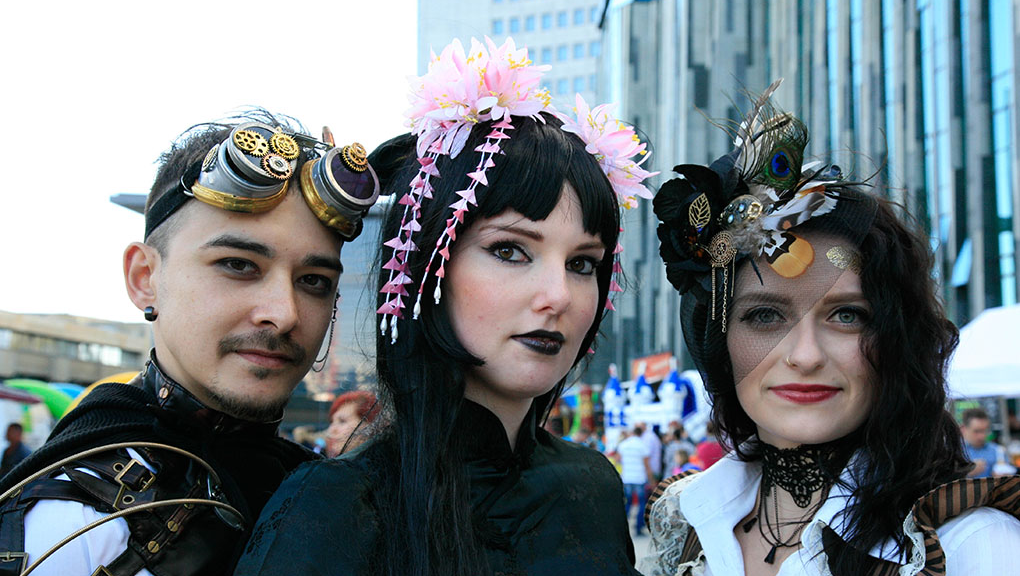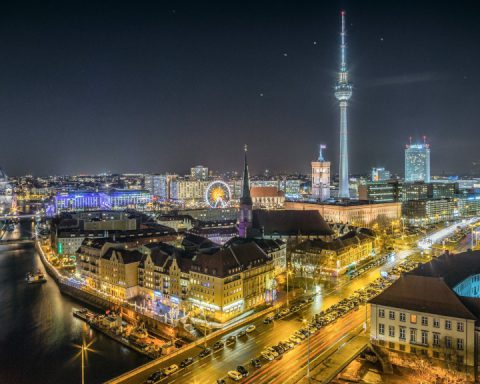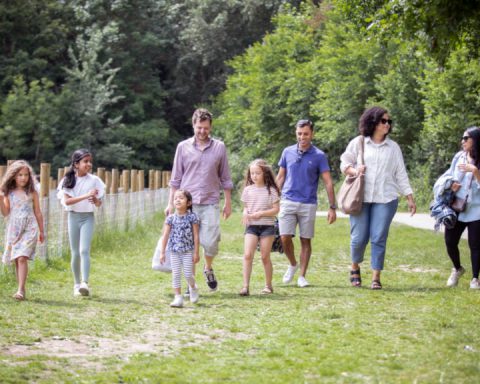LeipGlo has interviewed Alhassan Muniru, a bright young entrepreneur from Ghana who has studied at Leipzig University. Through his organization Recycle Up! Ghana (RUG), he and his team educate young people on plastic waste and recycling in their country, where pollution is a huge problem. Besides his international studies, Alhassan travels the world attending conferences and workshops, as well as giving talks. He has grabbed the attention of the World Bank and hobnobbed with the likes of former United Nations Secretary-General Ban Ki-moon.

Interview with Alhassan Muniru, Recycle Up! Ghana
How old are you and what city or town are you from in Ghana?
I’m 27 years old and grew up in Kumasi, the second biggest city in Ghana. Kumasi is the capital of the Ashanti Region of Ghana.
When and how did you become interested in being an entrepreneur and addressing environmental issues through your work?
I come from a family of entrepreneurs, who are in the hardware and plumbing materials business. It goes all the way back to my grandfather, who was a businessman, to my dad who took over the family business. Almost everyone in my family is involved in some form of trade and logistics in one way or another; that’s all I saw growing up.
I took a different route, though. I went to school to become an engineer. I never really got involved in the family business. I was more of an advocate, and after engaging in several youth exchange programs, I decided to form a non-profit organization with some of my friends. This long route will eventually bring me to where I am now, an environmental entrepreneur.
I learned to combine business with my academic background. This is only possible because I understand the potential impact of climate change on our society and could contribute to avert its effects. The world is now connected more than ever before, and the challenges we face today must be solved with a different mindset. That’s why I chose the path of environmental entrepreneurship.
Someone must do it, and it’s up to us, the younger ones who have had the privilege of studying about these challenges, to make the change; that’s why I do what I do.

How did your life, educational and professional path lead you from your hometown to Leipzig?
The short version of my story goes all the way back to my freshman year in college in 2010, when I decided to join two student organizations – AIESEC and the International Association for the Exchange of Students for Technical Expertise (IAESTE). These two organizations gave me the necessary training to become a global citizen; I was exposed to several global issues and trained to become a change-maker.
I ended up going on two exchange programs: first to Port Harcourt, Nigeria, in 2011; and then Jena, Germany, in 2012. After the experience in Germany, two of my friends and I ended up collaborating with a German NGO (Technik Ohne Grenzen e.V.), to start the Ghanaian chapter of Technology Without Borders. We would go ahead to work on over 32 projects in three years, spanning from ICT education, water and sanitation, wastewater to waste management projects.
After my graduation from the College of Engineering of the Kwame Nkrumah University of Science & Technology (KNUST), I got appointed to undertake my mandatory one-year national service at the Technology Consultancy Center, where I worked for a year as a research assistant.
I knew I wanted to further my studies, and when the time was right, I decided to apply to study in Germany due to the high-quality education offered for a fraction of the cost of studying elsewhere.
I was fortunate enough to come across the Joint International Master in Sustainable Development offered by Leipzig University. The moment I saw the program, I knew instantly that was exactly the kind of study program I was searching for. I then got accepted into the joint program, with Leipzig as my home university, and with Utrecht University (Netherlands) and Stellenbosch University (South Africa) as my mobility universities.
Eight months into the program, I got a full-ride scholarship from the German development agency Bread for the World to cover the rest of my study period.

How did the idea for Recycle Up! Ghana come about, what stage is the startup in, and what kind of connection does it establish between Ghana and European countries (such as Germany)?
The success story of RUG is a story of four dedicated, passionate and ambitious young change-makers from Ghana and Germany: Alhassan Muniru, Sampson Oboh, Torben Fischer, and Manuel Schulze. Inspired by our companionship and driven by our joint belief in building an international movement among the African and European youth to change the status quo, we teamed up and commenced our endeavor known as Recycle Up! Ghana.
In fall 2013, we discovered the opportunity to apply for a grant from the Davis Projects for Peace Foundation, and applied with the concept for Recycle Up! Ghana. We won $10,000 in seed funding, and in August 2014 organized the first-ever Recycle Up! Ghana summer camp, with 27 participants from nine high schools in Kumasi.
The idea was shaped and influenced by our various experiences and diverse backgrounds, and this is reflected in the outcome of our work.
More importantly, we chose to do Recycle Up! Ghana because we wanted to contribute to solving real systemic problems, and to truly making a difference in this world.
The organization is youth-led, and is run by volunteers from Ghana and Europe. We are registered in both Ghana and Germany, and have members working from over 10 cities across different time zones. This means that we do a lot of work remotely and collaborate from several locations to ensure a smooth operation.
Over the past four years, we have implemented six summer camps in three regions, had two summer schools, partnered with over 50 schools, and empowered over 150 Recycle Up! Ambassadors who have helped us to reach over 9,000 Ghanaians through our multiplicator effect approach. These ambassadors act as change agents and have formed clubs in their schools, educating their fellow students about waste recycling as well as collecting plastic waste for recycling from their schools.

How long did you live in Leipzig, and what did this period in the city contribute to your career and project development?
I moved to Leipzig in October 2015, right at the start of my Master studies. So it’s been more than three years now. But to be honest, since I have spent three semesters abroad and been traveling around quite often, I would say that I have lived in Leipzig for only 1.5 years.
However, I can say that the period that I have lived in Leipzig has most certainly been fruitful – both personally and professionally.
Leipzig has a bustling entrepreneurship scene, and most young people I have interacted with are progressive and eco-conscious; this has led to several intellectually stimulating conversations with most people.
The presence of startup hubs in Leipzig such as the Social Impact Lab, SpinLab and Basislager Coworking, and of entrepreneurship institutions such as the SMILE and SEPT programs and the Graduate School of Management (HHL), always offers one several choices, and a variety of ongoing events and support. RUG was fortunate to win a scholarship to be part of the Social Impact Lab’s startup program, where we had access to the lab for eight months, including several workshops and networking events.
The proximity of Leipzig to Berlin also makes it great to be here, and the fact that for less than 10 bucks one can go to Berlin in less than 2.5 hours also adds to the magic of being in Leipzig. In addition, we all know what Berlin has to offer when it comes to the entrepreneurship scene, which makes for a great supplement.

Where are you based now, and what business-related travels are planned for 2019?
Last year, I was based in Boulder, Colorado, USA, undertaking a semester incubation program at the Watson Institute. Since then, I have been in Berlin and then Ghana to oversee our current activities.
The main activities I have been involved in over the past year include participation in the Seedbeds of Transformation conference in Port Elizabeth, South Africa; the European Forum Alpbach in Austria; the International Conference on Sustainable Development in New York; the World Bank Youth Summit and Georgetown Africa Business Conference in Washington, DC; the Africa Climate Week in Accra, Ghana; and the SDG festival of Action in Bonn, Germany.
I look forward to participating in upcoming events such as the Autumn School for Sustainable Entrepreneurship, Global Entrepreneurship Summit, and once again in the European Forum Alpbach later in the year.

In what ways are your projects connected to and / or supported by the World Bank?
Since my participation as a finalist in last year’s World Bank Youth Summit, I have had the opportunity to be flown to the World Bank headquarters in Washington, DC, to interact with senior staffers at the agency, as well as to present my project in front of a global audience.
The exposure has been great and has opened several doors.
I have been connected to the WBG Ghana country office, and am still in touch with the agency to see how we can best collaborate soon.
What are some of the challenges your projects have faced?
Some of our main challenges, especially in the beginning of the projects, had to do with getting the right partners and stakeholders to support our work. We had to put in a lot more effort to get schools on board, as well as recruitment of the right volunteers and participants for our activities. Volunteer retention over the past years has also been an issue, as most volunteers graduated and couldn’t get involved as much as before.
One major challenge when it comes to the waste sector has been getting access to a good market for the plastic waste we are collecting for recycling. We’ve yet to get a breakthrough in policies to supplement the work we are doing, and that in itself is a challenge in Ghana. We want to see a ban on single-use plastics, and I would love to replicate the Pfand system in Ghana.

What advice would you give to young entrepreneurs who would like to follow on your footsteps?
My advice for young entrepreneurs would be to always know their “WHY” for whatever venture they decide to embark on. Knowing your “WHY” allows you to go as far as possible with your decision, and helps you to keep your focus and determination.
You should do it because you love and want to do it, not because you have to do it.
Also, young entrepreneurs should keep on improving themselves, they should stay focused, keep their heads down, eat well, exercise and stay healthy, and learn to treat everyone as the messiah and value return on relationships.
Some of the awards and press Alhassan’s projects have received:
- Davis Peace Prize ($10K)
- German Embassy grant (€8K)
- Google Impact Challenge (€10K)
- Social Impact Lab Leipzig (scholarship package worth €10K)
- Watson Institute semester incubation (scholarship of $10K)
- Ban Ki-moon Global Citizen Award
- World Bank Youth Summit Competition finalist
- Saxony Youth Foundation (Genial Sozial Project – €80K)
- ISWA YPG Award (Schools education category – 1st Prize)
- Georgetown Africa Business Summit – New Venture Challenge finalist
- Documentary by BBC
- Documentary and article publication by DW tv Eco@ Africa channel

